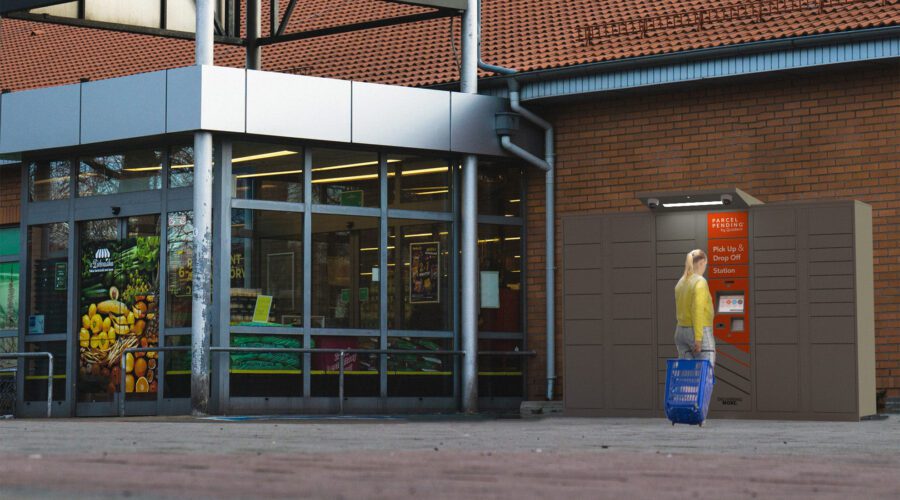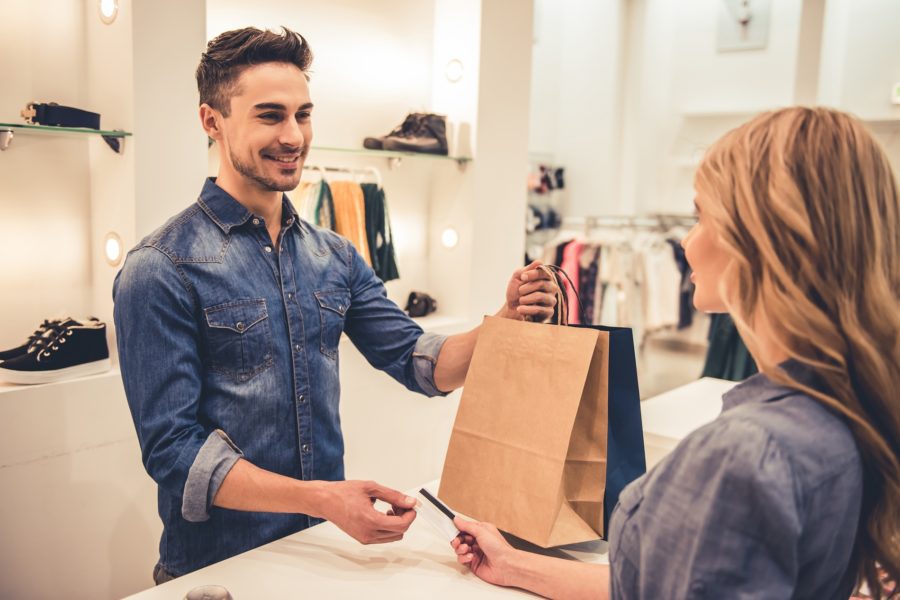
Retail
Omnichannel Trends for 2021
Written by: Parcel Pending
7 Min Read
Published: January 15, 2021
Updated: March 29, 2023
With the new year barely a few weeks old, it’s clear that 2021 eCommerce predictions are based upon transforming pandemic era consumer behavior into permanent shopping habits. As online sales rose a whopping 49% in 2020 from 2019, and record-breaking Black Friday and Cyber Monday sales totaled $9 billion and $9.4 billion respectively, monitoring eCommerce trends is a key tactic for success1,2,3.
Omnichannel Everything
Cultivating customer loyalty is dependent on the successful implementation of an omnichannel experience. Omnichannel retail involves creating a consistent customer experience across mobile commerce, websites, social media, ads, and physical store visits. Put simply: customers want to purchase effortlessly and seamlessly on every platform. Whether it’s direct shopping from social media, purchasing in-store, or chatting with a virtual assistant, shoppers expect retailers to adapt. In fact, 73% of retail consumers use multiple channels to shop and almost 23 million Americans will be using voice commands to buy products by the end of this year4,5.
Target is a model of solid omnichannel retail strategy with its Target Circle app, which provides a truly seamless and easy customer journey. When in-store and using the store’s free Wi-Fi to access the app, shoppers can scan items to check prices or unlock special discounts and rewards. Outside of the store, consumers can check inventory at a particular store, thereby saving time and earning added customer loyalty.
Starbucks, too, boasts a winning app with 48% of smartphone users citing it as their favorite6. Not only do java lovers earn rewards by using the app to pay, but they can also easily order in advance to pick up in-store using their mobile device. A new feature developed by in-house marketers integrates with Spotify so that visitors can even identify what song is playing in the store.
Further, retailers who embrace mobile wallet payment methods (brand-specific or more widespread services like Apple Pay and Google Pay) enable customers to breeze through checkout quickly and easily.
Buy Online, Pick Up In-Store (BOPIS) Grows and Adapts
Although Buy Online, Pick Up In-Store (BOPIS) initially served customers’ needs for both instant gratification and safety, Tango founder, President and CEO Pranav Tyagi explains that it also allowed retailers “to compete with online giants like Amazon” and “accelerated this move to e-commerce by five years.”7
Retail trends indicate that 90% of retailers expect to offer BOPIS this year, but it’s not enough for a retailer to simply offer the service. Rather, this offering becomes a successful competitive advantage when a retailer can engineer a strategy that creates the best overall retail customer experience for shoppers. Making a customer enter a crowded store, stand in a line, and wait for assistance defeats the reasons the shopper opted for BOPIS in the first place! Designing separate entryways and providing designated parking spaces for BOPIS are key first steps.
However, smart lockers are becoming increasingly essential to the BOPIS process. Easily opened with a PIN number or barcode delivered via email, text, or mobile app, the transaction requires zero human interaction; lockers allow retailers to retain full chain-of-custody for their order fulfillment without sacrificing convenience for the customer.
That’s why home improvement retailer Lowe’s chose BOPIL® by Parcel Pending to support their BOPIS8. “With more than 60 percent of online orders picked up in our stores, [the lockers give] our customers one more option and the added convenience and flexibility to control how and when they get that order,” said Joe McFarland, Lowe’s Executive Vice President of Stores said about the decision to install lockers at all 1,700+ stores. “This is a significant step in our relentless efforts to create a fast and frictionless shopping experience for today’s time-pressed consumers.”
BOPIS is not only mainstream but critical to total retail sales. 50% of consumers have decided where to shop online based on whether or not they could pick up in-store. And 49% of shoppers made unintended purchases while picking up their items in-store9.
The Rise of Buy Now, Pay Later
Welcome to the business of “buy now, pay later”. This facet of omnichannel commerce has been led by Afterpay, Klarna Bank, and Affirm Holdings – these three companies alone reported record earnings and customer adoption in 2020. In November 2020, 13 million US shoppers opened an Afterpay account, Klarna counted 11 million users, and Affirm users reached 3.9 million as of Sept. 30, 2020, up 63% from a year earlier10.
The success of these new payment methods’ marketing concept is rooted in consumers’ unwillingness to take on debt during this time of economic uncertainty. Typically structured as interest-free loans whereby the total purchase price is divided into a set number of equal payments, it encourages debt-averse shoppers to make online purchases. Affirm, for example, finances the high-ticket Peloton bikes.
Same-Day Delivery is Now a Necessity
Whereas same-day delivery was initially a luxury, it’s now a necessity according to Rina Hurst, chief business strategy officer at Shipt11. The company’s roaring success of delivering everything from pet care (Petco) to home goods (Bed, Bath, & Beyond) to toys (Build-A-Bear), demonstrates the necessity for virtually all retailers to offer same-day delivery. And this omnichannel retail trend is not going away.
Customers are increasingly looking for flexible order fulfillment options and a seamless experience from their choice retailers. Salesforce reports that online sales Dec. 1–Dec. 14 of 2020 grew 52% year over year for U.S. retailers that offered curbside, drive-thru, and in-store pickup options12.
Albertson’s, for example, booked strong sales growth in 2020 noting that there were fewer trips per household but larger baskets,” according to Chief Executive Vivek Sankaran. Further, it’s looking to expand its ready to eat/ready to heat option, but relying on third parties for delivery such as DoorDash.
Best Buy has a host of same-day delivery options and employs multiple delivery services to provide faster order fulfillment. During the holidays, Macy’s and Bloomingdales partnered with delivery services to get orders to online shoppers quickly. Even cannabis retailers are servicing shoppers with same-day delivery, with some California dispensaries reporting 200% growth on Cyber Monday 2020 vs. 201913. These delivery options are proving to be a customer service offering that is a priority for both millennials and younger shoppers.
Contactless Checkout
Amazon earned headlines with the rolling out of its Go stores in 2018 using “cashier-less” technology. The big news, however, is that the online retail giant is looking to incorporate this payment method into Whole Foods locations in early 202114. Watch for more retailers to offer similar options in addition to self-checkout. Substituting technology for cashiers not only saves money, but also creates a safe, fast, and positive shopping experience.
Managing Customer Returns; Letting Customers Keep the Item
Returns are a cost of doing business…and also a big headache. The number of eCommerce packages that were returned in 2020 jumped 70% from 2019. Narvar, a company that processes retailers’ returns, estimates that over 50% of returns were due to higher eCommerce sales15.
Major online sellers are calculating the cost of processing returns and, in some instances, they’re telling the customer to keep it. Target, Walmart, and Chewy have a “keep it” option based upon economics. It’s estimated that processing online returns can total $10.00 to $20.00 per item excluding freight.
While encouraging customers to keep returns is a decent short-term fix, retailers must look to find new methods of managing returns, such as processing returns through smart lockers.
In 2021, the secret to success for marketers is delivering a consistent customer experience across all channels. Every consumer is looking for a shopping experience that exceeds their expectations and many retailers are turning to an omnichannel strategy. From social commerce to mobile apps to in-store experiences, flexibility for customers earn loyalty and sales.
Interested in boosting your omnichannel customer experience in 2021? Learn more about our retail parcel locker solutions here.
Sources:
- Mastercard. (2020, December 26). Mastercard SpendingPulse: U.S. Retail Sales* Grew 3.0% This Holiday Season [Press release]. Retrieved from: https://www.mastercard.com/news/
- Durbin, Dee-Ann. Business Insider. US consumers spent a record $9 billion on Black Friday online shopping. (2020, November 29). https://www.businessinsider.com/black-friday-sees-record-online-as-us-shoppers-stay-home-2020-11.
- Lucas, Amelia. CNBC. Cyber Monday online sales hit record $9.4 billion, boosted by late-night spending spree, Adobe says. (2020, December 3). https://www.cnbc.com/2019/12/03/cyber-monday-online-sales-hit-record-9point4-billion-adobe-says.html.
- Sopadjieva, Emma, Dholakia, Utpal M., and Benjamin, Beth. Harvard Business Review. A Study of 46,000 Shoppers Shows That Omnichannel Retail Works. (2017, January 3). https://hbr.org/2017/01/a-study-of-46000-shoppers-shows-that-omnichannel-retailing-works.
- Built In. 31 E-Commerce Trends Changing How We Shop and How Companies Do Business. (2020, February 26). https://builtin.com/consumer-tech/ecommerce-trends.
- Marotta, Deb. Hitachi Solutions. All Things Omnichannel in Retail: Trends, Strategies, Solutions & More. (2020). https://global.hitachi-solutions.com/blog/omnichannel-retailing.
- Rothstein, Matthew. BisNow. CRE Executives Make Their 2021 Predictions For The Industry. (2021, January 3). https://www.bisnow.com/national/news/commercial-real-estate/cre-execs-predict-2021-107224.
- Lowe’s Home Improvement. (2020, September 22). Lowe’s Leverages Innovative Technology to Launch Contactless Pickup Lockers Nationwide [Press release]. Retrieved from: https://corporate.lowes.com/newsroom
- Ross, Lisa. Invesp. Buy Online Pick Up In Store – Statistics and Trends [Infographic]. (2020, June 10). https://www.invespcro.com/blog/buy-online-pick-up-in-store-bopis/.
- Rudegeair, Peter. The Wall Street Journal. Covid-19 Economy Boosts ‘Buy Now, Pay Later’ Installment Services. (2020, December 30). https://www.wsj.com/articles/covid-19-economy-boosts-buy-now-pay-later-installment-services-11609340400.
- Lesavage, Halie. Retail Brew. Inside Shipt’s Evolution from Delivering Groceries to Delivering Everything. (2021, January 11). https://www.morningbrew.com/retail/stories/2021/01/11/inside-shipts-evolution-delivering-groceries-delivering-everything.
- Evans, Katie. Digital Commerce 360. Holidays and health concerns continue to drive online sales in December. (2020, December 22). https://www.digitalcommerce360.com/article/coronavirus-impact-online-retail/.
- Sandy, Eric. Cannabis Dispensary Magazine. 2020 Saw the Rise of Cannabis Delivery. (2020, December 21). https://www.cannabisdispensarymag.com/article/cannabis-delivery-trends-2020/.
- Lyles, Taylor. The Verge. Amazon Go’s cashierless tech may come to Whole Foods as soon as next year. (2020, August 24). https://www.theverge.com/2020/8/24/21399607/amazon-cashierless-go-technology-whole-foods-2021-rumor.
- Kapner, Suzanne & Ziobro, Paul. The Wall Street Journal. Amazon, Walmart Tell Consumers to Skip Returns of Unwanted Items. (2021, January 10). https://www.wsj.com/articles/amazon-walmart-tell-consumers-to-skip-returns-of-unwanted-items-11610274600



